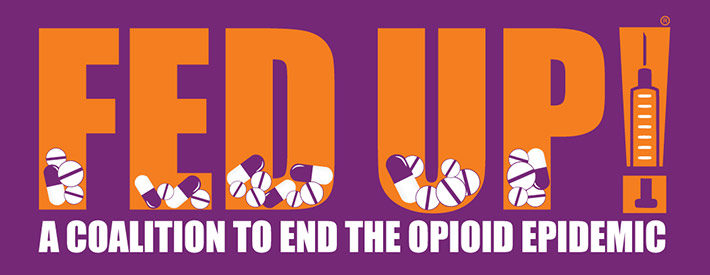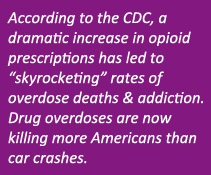One year ago, President Trump declared the opioid crisis a public health emergency. On Wednesday, the opioid package was signed into law with $8.5 billion allocated for opioid solutions. This will
Key components of the bill include funding for addiction treatment, recovery housing and job training for people with substance use disorder and a lift on an outdated rule which barred Medicaid from covering addiction treatment in facilities with more than 16 beds. Expanding access to
With fentanyl now the leading cause of opioid overdoses in our country, measures to tighten postage tracking will also be implemented.
The bill allocates the money over the next year. Although the bill is an excellent step in the right direction and an example of bipartisan cooperation to address the crisis, until addiction is treated as a disease by society and truly confronted as a public health emergency, we will continue to see an influx of overdose deaths and the number of individuals suffering from the disease of addiction. Fighting systemic injustices is critical. Insurers upholding parity, coverage of addiction treatment, standards of care for recovery residences, compassion and care towards those who use opioids to manage pain, reducing addiction stigma; all are essential changes we need.
The funds are simply not enough. Hundreds of billions are needed over multiple years. A proposal by Sen. Warren and Sen. Cummings would have done just that. Modeled after the Ryan White CARE Act, legislation that funded solutions and support for communities impacted by HIV/AIDS, the Warren-Cummings proposal called for $100 billion over 10 years. This proposal was not included in the final opioid bill. With more attention to treatment for opioid use disorder, it’s important for us to also advocate for recovery services. Recovery for the individual and the family.
These funds would never have been made available without you. You called, emailed, showed up, and told your stories. We, as a coalition, work together as individuals and organizations to advocate for these changes, to save lives, to deliver compassion to our communities. Only together are we a powerful constituency, a unified message, a coalition. We have a lot of work ahead of us. Today, the Ensuring Patient Access and Drug Enforcement Act still stands, the FDA continues to approve new, highly potent opioids, and overdose deaths continue to soar.
We will continue to demand Federal action, to rally in cities across the country, and raise our voices. We’ll push forward in our local communities with the work of our organizations and the advocacy of the individuals demanding change.







